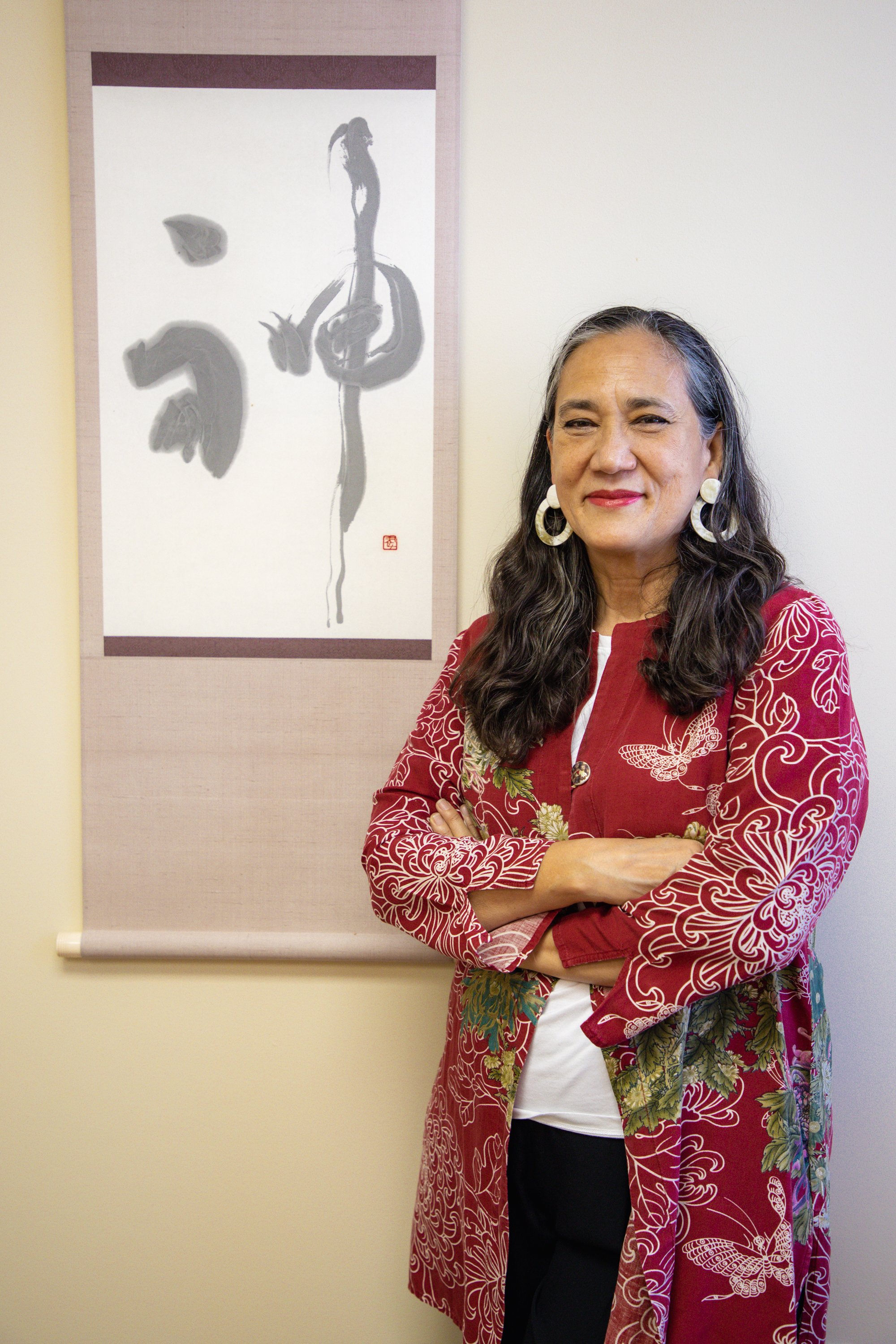If You Want Your Portfolio to Grow Heroically, Leave It the F*ck Alone
Dear Friend,
On May 9th, I’ll be teaching a free one-hour class on Zoom, The Hierarchy of a Dollar, sponsored by the YWCA of O’ahu.
Learn what makes a dollar more valuable than another.
By understanding the difference between denomination and value (e.g., a dollar today vs. a dollar tomorrow), you’ll make money decisions with more confidence and clarity.
Meditation can be torture.
There you are, sitting cross-legged on the black zafu (hard round pillow) piled on top of the black zabuton (big square flat pillow) at the Zendo with a bunch of other silent people trying not to move, and your nose starts to itch.
You try hard not to scratch.
That’s part of the medicine, the leaning into an itch, feeling the richness of its tickle, the itch slowly consuming your consciousness and drowning your willpower in a rising tide of “I need to scratch, or I will die.”
You won’t die if you don’t scratch.
And if you do scratch, your karma won’t get brown at the edges. In some ways, the more you sit, the easier it gets, and in others, the more you sit, the harder it gets. That’s Zen for you.
But when it comes to investing, scratching the trading itch will cost you.
I read recently yet another study confirming that a buy-and-hold strategy will beat a market timing strategy all the damn time. As an investor, it’s way more profitable to “set it and forget it” than to try to time the market.
Here’s why scratching the itch doesn’t work.
For one, when you make a brilliant call to get out of the market, it’s very hard to get back in. It’s a glorious feeling to wallow in being heroically right. You’re like Cinderella and want to stop the clock at 11:59 p.m., so you can forever live your peak experience. You never want to make another market call because you’ll probably be wrong, and being wrong sucks.
No shade. That’s just human nature.
For another, the time to buy is when you have to act like a fireman and run INTO that market inferno torching up billions as it rages. The media will be full of scary headlines. Your cocktail parties will be full of bankruptcy gossip. All that doom and gloom is exhausting, and you want no part of it.
Truth is, most of us do not want to run into burning buildings.
So keep your “mattress money” (money you are investing for the long-term) invested and don’t try to time the markets.
Keep putting more to work automatically so that when markets are down, you get more bang for your buck and you’re calm and methodical.
This will feel better than panicking or holding onto your cash, hoping to pick the absolute bottom, and then scrambling to invest when markets are ripping.
Life’s enough of a rollercoaster. No need to let investing decisions take you for a ride too.
Don’t believe me? Here’s proof.
A study done by Bespoke Investment Group and published by Barron’s MarketWatch on April 26th, 2023 shows that “buy the dip” (a.k.a. run into the fire) outperforms “buy the momentum.”
Here’s the best part though – “buy and hold” beats them all, hands down.
The difference between buying after down days vs. after up days:
“Since 1993, when the SPY exchange-traded fund (SPY) tracking the S&P 500 (SPX) was created, owning that security the day after down days produces a total gain of 740% — versus a gain of just 10% for buying it the day after an up, or exactly flat, session.”
The difference between buying after big down days vs. after big up days:
The cumulative difference (+350% vs. a LOSS of 50%) was even more notable when they compared “buying the big dips” (after a day the market was down 1% or more) vs. “buying the big runs” (after a day the market is was up 1% or more).
What you’d make if you bought and held:
Better yet, if you’d just held the S&P 500 ETF (SPY) since inception in 1993, you’d have generated a cumulative return of +824%. That’s better than the +740% of buying after down days, or +350% after big down days.
The moral is if you’re going to try to time markets, learn to run into burning buildings. If you’d rather not (how sensible of you!), just keep investing automatically, and you’ll come out ahead.
It takes a hero to not scratch a trading itch.
Three quick and easy resources to be a better steward of your money:
The Three Bodhisattvas of Finance
Safety, and Clarity are needed to take Aligned Action when it comes to managing your money.
Jizo, Manjusri, and Daruma embody those qualities, and will inspire you to feel more grounded and confident in your decision-making.
Each week I show you how to cultivate each step.
One way to feel more grounded and content is to practice gratitude.
But most commonly recommended gratitude practices are junk, it turns out. Who knew? 🤷🏻♀️
Go ahead and throw out that list of things you’re grateful for.
Instead, use this quick and easy, scientifically proven way to have an effective gratitude practice.
You’re welcome.
MANJUSRI: Clarity and Discernment
Watch this TedX talk about the difference between confidence and competence.
You’ll never again be fooled by the dude who appears to be a great leader but turns out to be a train wreck in a suit.
Hone your discernment in just 9 minutes. The sexy accent is a bonus.
I was skeptical when years ago, hotel chains started asking guests to keep their linens in order to save the planet.
It’s not that doing laundry doesn’t waste a lot of resources.
It does. It’s the guilting gift wrapped in self-righteous gaslighting that was obnoxious. The hotels were making no other environmental efforts to speak of, and this was an easy way to cut costs.
“Let’s greenwash our way to fatter profit margins!”
Had management said:
“When you reuse your sheets and towels, we save X gallons of water, X KW of electricity, and X$ in labor and laundry costs, which we’ll use to keep our rates low. It’s a win-win for everyone. – the planet, your hotel bill, and our bottom line.”
I’d have felt differently.
So when hotels have been slow to reinstate daily hotel room cleaning post-COVID, it’s safe to assume it’s not being done for your health and that someone is probably being screwed in the process.
Find out who benefits and who’s paying the price.
The next time you stay at a hotel that does not automatically provide daily cleaning, ask that it be provided.
You’ll sleep better that night.
For more thoughts and ideas on financial intimacy, subscribe to my weekly newsletter Cultivating Your Riches.









